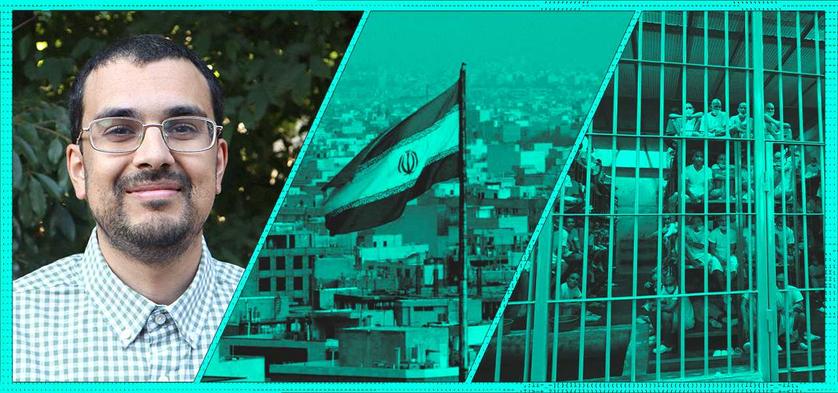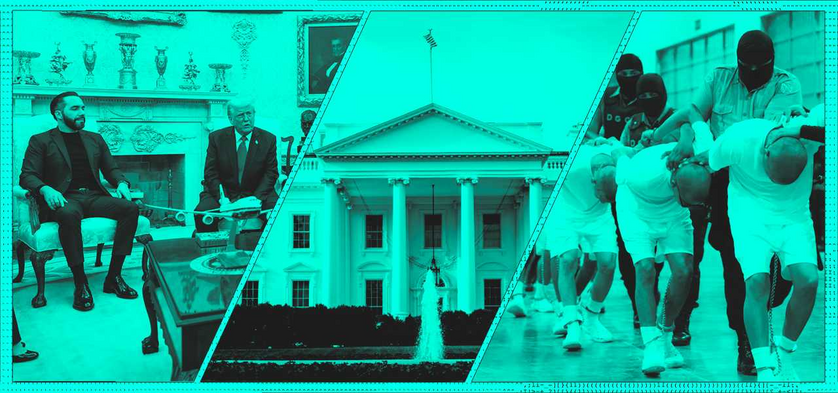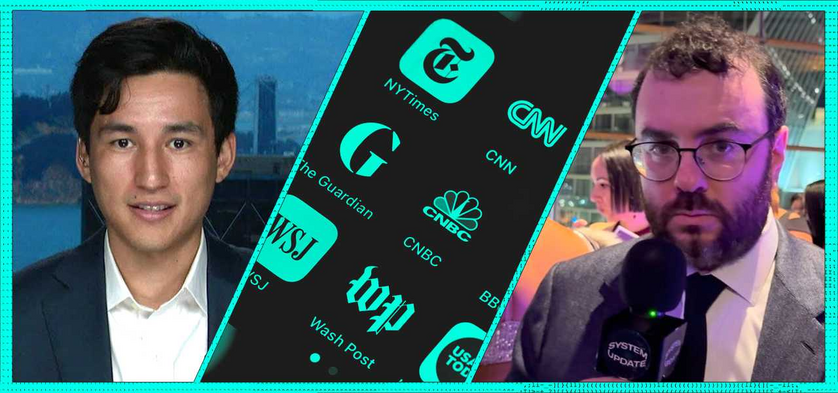The following is an abridged transcript from System Update’s most recent episode. You can watch the full episode on Rumble or listen to it in podcast form on Apple, Spotify, or any other major podcast provider.
System Update is an independent show free to all viewers and listeners, but that wouldn’t be possible without our loyal supporters. To keep the show free for everyone, please consider joining our Locals, where we host our members-only aftershow, publish exclusive articles, release these transcripts, and so much more!
Michael Tracey is filling in for Glenn, who is off “gallivanting around somewhere on one of his mysterious misadventures.”
Zaid Jilani is Michael’s guest to talk about what everybody is talking about: the Trump administration's threat letter to Harvard, which Harvard has defied.
Tracey also covers what appears to be telegraphed as an increasingly likely march to war with Iran. According to the intrepid journalist, the war may not happen, but the groundwork is certainly being laid.
There was another aspect of that Bukele meeting that hasn't gotten enough coverage: Trump was asked about the Iran negotiations that are sensibly underway between the United States and Iran. It's the first known senior-level contact between American senior leadership and Iranian senior leadership since the Obama administration – infamously, Donald Trump decided to withdraw, after the Obama administration, from Obama's signature foreign policy diplomatic achievement.
You can criticize that achievement or herald it, but it was his signature achievement, I think it would be hard to dispute, which was the Iran nuclear deal, or the JCPOA.
Trump campaigned for president in 2016, denouncing that deal. I vividly recall him appearing at a Tea Party Patriots protest in September 2015, alongside Ted Cruz, that was devoted to denouncing the JCPOA, with Trump saying he had never seen a worse negotiated deal in his entire life.
Anyway, direct negotiations, or at least direct contacts, we don't really know the full extent of what's been discussed yet, have begun between the United States and Iran as of this past weekend. And Trump was asked about those negotiations.
So, let's hear what he had to say.
Video. Donald Trump, Nayib Bukele. April 14, 2025.
That's Trump being asked if he is contemplating, or does the outcome envisioned here include a strike on Iranian nuclear facilities, and Trump says, “Of course it does.”
Trump has been becoming more and more brazen with these overt threats against Iran, particularly since March 30, when he decided to place a phone call to Kristen Welker, of NBC News, the host of “Meet the Press.” “There will be bombings the likes of which they have never seen before.” That's what Trump called up Kristen Welker of NBC News and told her in a phone interview.
There could be an extent to which people are inured by this because Trump says a million things every day, some are deliberately incendiary, some are sarcastic, some are trolling, some may be earnest. Who knows? We can never quite settle on what the proportion is here in terms of how we're supposed to interpret the endless cacophony of Trump’s remarks on a given day, but it is really worth noting that presidents hadn't tended to come out and publicly threaten Iran that they will be bombed in a time-bound period if they don't capitulate to U.S. demands.
You have had previous presidents, including Obama, say stuff to the effect of all options are on the table with respect to Iran. But it was seen as so obviously bellicose and so obviously impermissible diplomatically to come out and just blatantly threaten to bomb Iran. Why? Because, in the case of Obama, if there was some potential diplomatic arrangement in the offing, which Obama subsequently did attain in 2015, then running around threatening to bomb Iran might be an impediment to achieving that because it could cast aspersion, grave aspersions on the intentions of the United States and its attempt to interact with Iran.
So, I actually went and asked a handful of people who are the wrong kind of policy experts, who are involved with Iran policy professionally and know the history of Iran and U.S. relations really well. I asked them: Is there a precedent of a U.S. president cavalierly coming out and just saying there will be bombing of Iran if X, Y and Z don't happen? And they say, “No, no, this is unique to Trump,” except for Trump's first term, when he did threaten, after the Soleimani assassination, in January 2020, to bomb Iranian cultural sites. But other than that, it's really not customary for presidents to be so bombastic in their public utterances with respect to Iran.
There are certain ways in which Trump really does defy foreign policy convention in a salutary way. One hallmark example from the first term is when, after some initial bluster, he did initiate direct diplomatic relations with Kim Jong-un of North Korea. The negotiations with North Korea didn't ultimately result in a settlement because, for one thing, Trump and his administration at the time insisted on maximalist demands around denuclearization that North Korea, as a matter of national pride or even personal pride on the part of Kim, was never going to agree to but it did break a significant taboo for those direct talks to even happen in the first place. It likewise breaks a taboo for Trump to be threatening to bomb Iran so openly, pursuant to some cobbled-together negotiations, which it's not even clear are in particular good faith.
So, that just is an indication of how it can be a double-edged sword meaning defying foreign policy convention can at times be salutary because foreign policy consensus is rife with failure, rife insular clique type thinking, and often revolves around people who have a demonstrable track record of myopia and “inhospitability” to criticism or contrary ways of thinking. So, Trump has at times the ability to disrupt that. But the double-edged sword is he could also say he's defying foreign policy convention because it hadn't previously been conventional to just be openly threatened to bomb Iran as he's doing now repeatedly in hopes, presumably, that it could result in some diplomatic settlement because Iran is just going to be so bludgeoned into submission that they're going to agree to maximalist demands imposed by Trump. But who knows? It could also be a pretext for war. Trump could say, “Look, we made every effort to negotiate with Iran. We even defied some convention by resuming high-level contacts between the U.S. and Iranian senior leadership, but they were so obstinate that we had no choice but to launch this bombing campaign with Israel that we've been threatening for weeks. And actually, even in the 2024 campaign, Trump threatened it publicly then.
So, let's take a look at what Steve Witkoff, who is becoming an all-purpose Trump envoy, initially focused on the Middle East, and that is still his official title, but he's also leading negotiations with Putin in Russia. He was on Sean Hannity's show on April 14, and he was asked about these ongoing negotiations.
There's an undercurrent of humor here because Sean Hannity would have blown a gasket in any other circumstance in which a senior U.S. official was trying to justify the utility of directly engaging with Iran. Namely, during the Obama administration, I can vividly recall Sean Hannity thinking that even the mere fact of talking to Iranian senior leadership was an abandonment of core American values or whatnot and giving credence to this Islamic terrorist regime or what have you. But nonetheless, of course, in the presence of Witkoff, he has to remain cordial.
Anyway, Steve Witkoff here gives some details as to what the conditions might be to obtain a settlement with Iran.
So, let's take a look at that.
Video. Steve Witkoff, Sean Hannity. April 14, 2025.
















